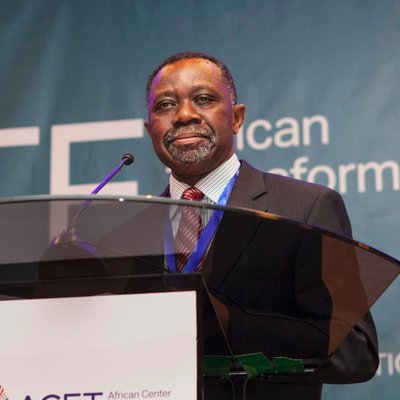
Collaboration, integration key to Africa’s economic transformation – Dr Bawumia
The Vice-President, Dr Mahamudu Bawumia, has said an African economic recovery and transformation could only be possible through an enhanced collaboration and further integration.
He said the COVID-19 pandemic had made the urgency and importance of collaboration and integration very clear.
“The pandemic has held back transformation in Africa but also provided opportunities for acceleration in areas such as digitalisation. These can only be unlocked completely through integration and collaboration on shared challenges,” he said during the virtual African Transformation Forum (ATF), organised by the African Centre for Energy Transformation (ACET).
Read: AfCFTA Secretariat, African shippers’ councils sign MoU
Free trade area
He said the operationalisation of the African Continental Free Trade Area (AfCFTA) exemplified the pan –African approach in line with the vision of Dr Kwame Nkrumah of achieving a continent-wide transformation.
Thus, Ghana was honoured to be selected as the permanent host of the AfCFTA secretariat.
“Without doubt, the AfCFTA has the potential to be the game changer for the post-COVID recovery and transformation if we can harness its numerous benefits.
“The scale and scope of these benefits depend on overcoming inadequate related infrastructure, inadequate production capacity, trade development finance, trade information and capital market integration,” he said.
Dr Bawumia said the government had also recognised the urgency and importance of addressing these crucial issues – the need to generate productive employment, support digital innovation and manage climate risks.
“Our policies have been developed from the outset with the mindset of transformation. This is reflected through educational initiatives such as the Free Senior High School in Ghana, our industrialisation agenda anchored around One-district, One-factory and the agricultural transformation blueprint carried through the Planting for Food and Jobs and Rearing for Food and Jobs programmes,” he outlined.
Read: Innovations needed to improve market access for smallholders - ACET Study
Also, he noted that the digitisation and leveraging of technology in every aspect of human activity was essential to Ghana’s transformation agenda and the success of her digital transformation journey was most evident when COVID struck.
“The use of drone technology to deliver medical supplies and vaccines in times of COVID was one more step in the use of technology to leapfrog some of our development challenges and overcome structural and logistical challenges to save lives,” he said.
Dr Bawumia commended THE ACET for being a standard bearer of the economic transformation discourse on the continent.
“It has advised dozens of African governments and undertaken world class research and analysis. It has a strong and impressive track record of convening policy makers, and with its advocacy advisory and analysis, it has brought not only new perspectives on debates but also provided actionable solutions,” he said.
The forum
The third ATF, held virtually provided an opportunity for key stakeholders to engage committed and influential leaders from government, business, academia and civil society to share ideas in support of Africa’s economic transformation.
The Founder and President of the ACET, Dr K. Y Amoako, said the ATF was focused mainly on Africa’s future and what it would take to ensure sustainable growth and transformation, not just in the aftermath of COVID-19, but over the long haul.
He said despite the serious challenges and economic uncertainties facing Africa currently, it was in a unique moment.
“Regional integration has long eluded our continent, but we are seeing progress. The AfCFTA has come into effect this year, and it offers a pathway for countries to advance integration beyond trade and markets.
“Pressing pan-African issues –– such as jobs and education, digital connectivity, climate change, infrastructure and energy –– need to be addressed in a collaborative way, not by countries working in isolation,” he emphasised.
He added that over the past year, “we have seen the positive impact of governments working together, as African leaders responded boldly to the pandemic to save lives. We see an opportunity for a similar approach, guided by visionary leadership, to enable transformative growth.”
Report launch
Meanwhile, the 2021 African Transformation Report, “Integrating to Transform” was launched during the virtual forum.
It tackles challenges to Africa’s economic transformation which include ensuring productive employment for Africa’s teeming workforce by giving them 21st century skills, supporting digital innovation by enabling the private sector to leverage digital technologies to create jobs, boost productivity and reduce poverty and managing climate risks by promoting climate-smart agriculture, protecting green ecosystems.
A Senior Fellow at the ACET, Prof. John Asafu-Adjaye, said African countries have recorded some good growth over the past two decades, but have made slow progress in actually transforming their economies.
“And this is because they have been working in isolation. The AfCFTA offers an opportunity for African countries to move integration beyond just trade and markets, towards collaborating to address the long-term challenges that constrain Africa’s development, he said.